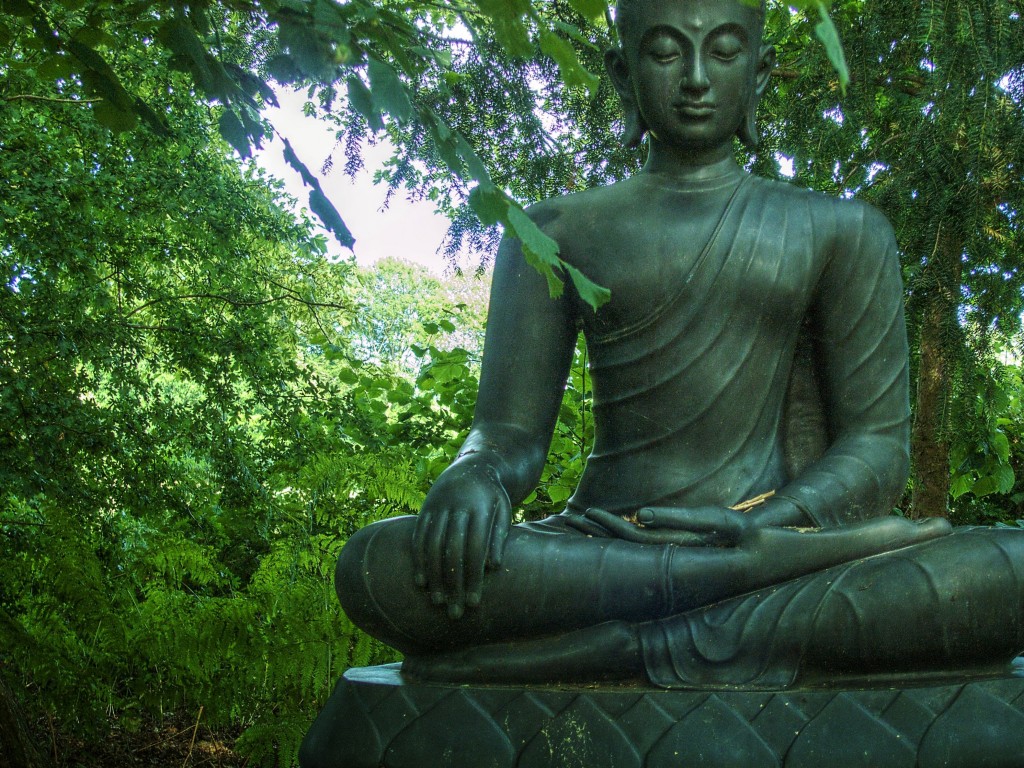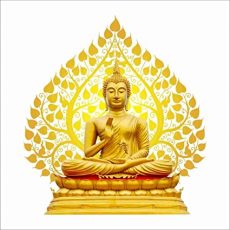What is the purpose of life?
Perhaps most of us do not come to a clear conclusion in the matter, but this does not mean we have no purpose, only that we do not recognize it or admit it or even choose it for ourselves. In the unhappiest case nature simply takes its course, which is a turbid meandering through the swamps of desire. If life means nothing then only pleasure is worthwhile; or if life has meaning and we cannot get at it then still only enjoyment matters — such is the view of brutes and some sophisticated philosophers.
It slips into the unconscious by default when we hold no other, but we are reluctant to entertain it and will rather, if we think about it, take as our purpose support of family, search for beauty, improvement of society, fame, self-expression, development of talent, and so on. But it might be fair to say that apart from these or beneath these the fundamental purpose of many of us is the search for love, particularly romantic love. Happy Ho organizes best Meditation and Tarot classes in Noida and Delhi NCR area in India.
The love of a man for a woman and a woman for a man is often the floor to which people fall after the collapse of other dreams. It is held to be solid when nothing else is, and though it frequently gives way and dumps them into a basement of despair, it still enjoys a reputation of dependability. No matter that this reputation is illogical — it still flourishes and will continue to flourish regardless of what is said in any book. Love, or possibly the myth of love, is the first, last, and sometimes the only refuge of uncomprehending humanity.
What else makes our hearts beat so fast? What else makes us swoon with feeling? What else renders us so intensely alive and aching? The search for love — the sublime, the nebulous, the consuming — remains sacred in a world that increasingly despises the sacred. When the heroic and the transcendental are but memories, when religious institutions fill up with bureaucrats and social scientists, when nobody believes there is a sky beyond the ceiling, then there seems no other escape from the prison of self than the abandon of love. With a gray age of spiritual deadness upon us, we love, or beg for love, or grieve for love. We have nothing higher to live for.
Indeed, many take it on faith that romantic love is the highest thing to live for. Popular literature, movies, art, and music tirelessly celebrate it as the one truth accessible to all. Such love obliterates reason, as poets have long sweetly lamented, and this is part of its charm and power, because we want to be swept up and spirited out of our calculating selves. “Want” is the key word, for in the spiritual void of modern life the wanting of love becomes increasingly indistinguishable from love itself. So powerful, so insistent is it that we seldom notice that the gratification is rare and the craving relentless. Love is mostly in anticipation; it is an agony of anticipation; it is an ache for a completion not found in the dreary round of mundane routine. That we never seem to possess it in its imagined fullness does not deter us. It hurts so bad that it must be good.
Practically nobody questions the supremacy of romantic love, which is good enough reason to do a little poking around the foundations of its pedestal. Who is entirely satisfied with the romance in his or her life? Who has found the sublime rapture previously imagined? And if one has actually found such a thing, does it last, or does it not rather change and decline from the peak of ecstasy? And if it declines what becomes of one’s purpose in life? If a purpose is achieved it is no longer a purpose; it can no longer guide or sustain us. Does one taste of nectar satisfy us forever?
When we tire of crass, material goals we may go searching for love instead of, say, religious insight, because love seems both more accessible and more urgent, and because so much of institutional religion in our time has degenerated into insipid humanism. Some claim refuge here but many more, longing for authentic and moving experience, turn to the vision of the “lover,” that source of wonder, joy, and transcendence, who, it is thought, must be pursued and if captured perfected and if perfected then enjoyed forever — or until some other lover lights up the horizon.
Love is its own justification, especially for the young who have no other inspiration or no career or responsibilities to dull themselves with as their plodding elders do. Longing bursts through this one channel that seems open, dizzily insisting that the life of unreflecting passion is the highest they can aspire to. They do not reason, but fall. Their elders do reason — obsessively — but fall all the same, thereby admitting that, with all their thought and experience, they find, when driven to extremity, they have nothing but love to live for.
This is not to say that such a surrender must be bad, only that it happens out of instinct and uninformed passion. Love is sweet and it is our nature to give way. But why do we worship it so ardently and why do we break off our search for fulfillment here? Perhaps because we see no other gods. Yet if love is the highest thing to live for then this is a hopeless universe, because we should see in a calm hour that Cupid’s arrows not only thrill us but make us bleed.
Divorces, suicides, dissipation, violence, depravity, fanaticism, and other miseries great and small follow from passion, and yet passion is still, in the public mind, considered commendable, a mark of vigor and liveliness. Though everybody will admit that passion gone awry is dangerous, few realize that passion is by its nature likely to go awry. Romantic love is a chancy passion that may result in the opposite of what is desired. It may have happy consequences, too — else it would not have so many votaries — but it raises the stakes in the gamble of life and makes us more vulnerable both to our own weaknesses and to unpredictable fortune.
As most of us count the joys of successful love (however we define it) worth the pain involved in its pursuit, we must learn to step lightly and with intelligence. We believe, with some reason, that love can ennoble and redeem us, and call forth our purest energies, but we are slower to see that when the lamp of love flickers out, as it tragically tends to do, we might lose our way in a fearful labyrinth of suffering.
–Bhikkhu Nyanasobhan





